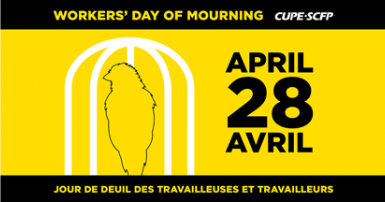Just a few weeks before the 28th anniversary of the Westray Mine explosion that killed 26 workers in the early hours of May 9, 1992, the United Steelworkers union (USW) says calls for a criminal investigation into the death and infection of workers at the Cargill meat processing plant in High River, Alta., are justified.
“The events leading up to the death of a worker who died at Cargill this month are eerily similar to those leading up to the explosion of the Westray mine 28 years ago,” said USW Western Canada Director Steve Hunt.
“An inspector, despite recommended social distancing and safety warnings in the COVID-19 pandemic, declared the workplace safe not long before one worker died and hundreds more tested positive. At the Westray Mine in 1992, inspectors declared the mine safe, despite clear violations of safety protocols and a buildup of methane-producing coal dust.”
Hunt said the Cargill situation is as predictable as the mine explosion, with workers working in close proximity and little or no protective gear.
At the Westray Coal Mine in Pictou County, N.S, in 1992 the USW was in the process of organizing workers, whose primary concern was the safety of the mine.
“Workers were signing union cards because they knew the company was negligent and they feared for their lives,” Hunt said.
Hunt testified at the subsequent inquiry undertaken by Justice Peter Richard, whose conclusion was that the disaster was the result “of incompetence, of mismanagement, of bureaucratic bungling, of deceit, of ruthlessness, of cover-up, of apathy, of expediency, and of cynical indifference.”
The Inquiry ultimately led to the 2003 unanimous passage in the House of Commons of amendments to the Criminal Code. Called the Westray Law, the amendments are intended to hold corporations and their directors and executives criminally accountable for workplace death and injury. The USW has campaigned for many years for better enforcement of the Westray Law.
“Too often employers plead guilty to negligence in workplace death or injury in exchange for a fine. Killing workers should never be just a cost of doing business. Cargill is no exception. This must be given a full investigation and, if warranted, result in criminal charges.”
Hunt said in 2020, deadly infection caused by COVID-19 is as much of a workplace hazard as any so-called “accident” involving heavy equipment, poor safety protocols or control.
“We are now living in an era with added risk to workers,” he said. “The Westray Law must apply in this case, and be investigated through a criminal lens.”
###
For further information:
Stephen Hunt, 604-816-2554, shunt@usw.ca


